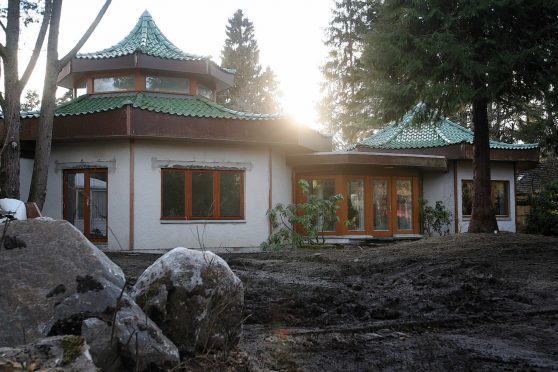Ambitious plans to transform a Victorian house in the Highlands into a new public arts centre have been recommended for approval.
The Grantown-on-Spey villa, complete with its own Japanese pagoda, will be transformed into a public facility complete with gallery and exhibition space as well as public meeting rooms and a cafe.
Nethy Bridge couple Ian and Elizabeth Boyd bought the show-stopping property at the town’s Moray Park in August 2014 and want to use the building to give something back to the community.
The distinctive pagoda – one of the only buildings of its kind in the north – was built for public use in 1997 by Peter Braun, a German architect who retired to Strathspey.
The building is not currently in use and is described as having a “chequered history” by planners.
The Boyds’ plans attracted seven objections from six households and nine letters of support.
Supportive comments backed bringing the existing building into public use as well as diversifying facilities in the area as a whole.
But objections were based around parking, lighting, noise nuisance and bin storage.
However, planning officer Andrew McCracken has suggested that councillors approve the plans when they meet to discuss them next week.
Under the plans, a recital room in the pagoda would provide space for musical lessons and performances, while a room across the hallway will be converted into a space for holding local art exhibitions.
The couple also hope to convert the existing kitchen and pantry areas in the villa into a new bistro and cafe, with the hope of attracting a local chef who might want to start their own business and help create several jobs and apprenticeship opportunities.
The couple expect to spend about £200,000 in renovating the villa.
Mrs Boyd has previously said: “We feel it is important to develop this asset in response to current and future opportunities.
“By doing so, we can contribute to making Grantown a destination town, similar to Pitlochry, by helping to promote traditional and contemporary exhibitions, events and learning experiences – including residential where possible.”
